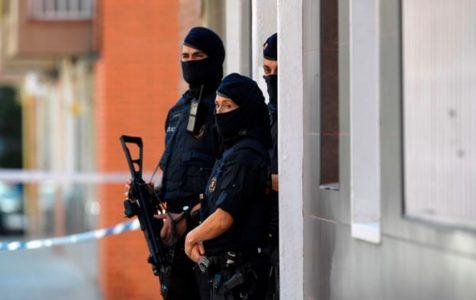
Algerian man armed with knife shouting Allahu Akbar tried to attack police officers inside police station near Barcelona
An man armed with a knife has tried to attack a police station in Catalonia, in what police are treating as a terror incident.
He was shot dead after he entered a police station in Cornella, near Barcelona, just before 6.00am (04.00 GMT) “to attack the officers”, Catalonia regional police said.
Anti-terrorism police sources said the man, a 29-year-old Algerian who lived in the area, had shouted “Allahu akbar” (God is greatest) as he entered the station. Police confirmed they were treating the incident as an attempted act of terror.
The police station was cordoned off and the attacker’s body removed from the building, a photographer at the scene said.
Officers searched the man’s home, located a few hundred metres from the site of the attack.
The incident occurred just days after the first anniversary of a deadly jihadi attack in Catalonia.
Sixteen people were killed on 17 August 2017 when a van drove into crowds on Barcelona’s popular Las Ramblas boulevard and in a knife attack in the nearby resort of Cambrils.
Islamic State claimed responsibility for the attacks, Spain’s worst since the Madrid train bombings in 2004 when 191 people died and more than 1,800 were injured.
Spain has kept its terrorist alert at the second-highest level since 2015.
Catalonia has had a long history of Islamic militant activity. Spain’s first Muslim extremist – a member of the Algerian Armed Islamic Group (GIA) – was uncovered in Catalonia in 1995.
Mohammed Atta, who flew a passenger plane into one of New York’s World Trade Center towers on September 11, spent time in Catalonia shortly before the attacks.
And in 2008, a plot targeting Barcelona’s underground trains was foiled when it was already in advanced stages.
One in four people detained in Spain over extremist Muslim-linked terrorism come from the province of Barcelona in Catalonia, according to a study published last year by the Real Instituto Elcano, a Spanish thinktank, which called the province the country’s “main centre of jihadist activity”.
Source: The Guardian





